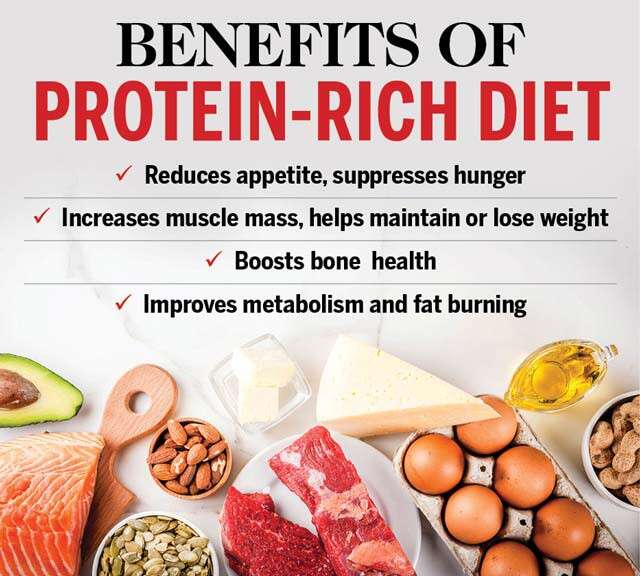The Benefits of Protein: A Comprehensive Guide
Welcome to our comprehensive guide on the benefits of protein. In this article, we will delve into the various advantages that protein offers to our overall health and well-being. Protein is an essential macronutrient that plays a crucial role in numerous bodily functions. From muscle development and repair to hormone production and immune system support, protein is truly a powerhouse nutrient.
The Importance of Protein
Protein is often referred to as the building block of life, and for good reason. It is composed of amino acids, which are the fundamental units responsible for constructing and repairing tissues in our body. Without adequate protein intake, our bodies would struggle to function optimally.
Muscle Development and Repair
One of the primary benefits of protein is its role in muscle development and repair. When we engage in physical activity, our muscles undergo stress and micro-tears. Protein helps to repair these tears, leading to muscle growth and increased strength. Athletes and individuals involved in regular exercise can greatly benefit from a protein-rich diet.
Hormone Production
Protein also plays a vital role in hormone production. Hormones act as chemical messengers in our body, regulating various processes such as metabolism, growth, and mood. Protein is necessary for the synthesis of hormones, ensuring the proper functioning of our endocrine system.
Immune System Support
Another key benefit of protein is its contribution to a healthy immune system. Our immune system relies on antibodies, which are proteins that help fight off harmful pathogens and infections. Consuming sufficient protein can enhance our immune response and reduce the risk of falling ill.
The Role of Protein in Weight Management
Protein is often associated with weight management due to its ability to promote feelings of fullness and reduce appetite. When we consume protein-rich foods, our body releases hormones that signal satiety, helping us control our calorie intake. Additionally, protein has a higher thermic effect compared to other macronutrients, meaning it requires more energy to digest and absorb. This can indirectly contribute to weight loss or maintenance.
How to Incorporate Protein into Your Diet
Now that we understand the benefits of protein, let’s explore some ways to incorporate it into our daily diet:
Include Lean Sources of Protein
Lean sources of protein include chicken breast, turkey, fish, tofu, and legumes. These options are low in saturated fats and provide high-quality protein.
Opt for Greek Yogurt or Cottage Cheese
Greek yogurt and cottage cheese are excellent sources of protein, calcium, and probiotics. They make for a nutritious and protein-packed snack or breakfast option.
Snack on Nuts and Seeds
Nuts and seeds, such as almonds, walnuts, chia seeds, and flaxseeds, are not only rich in protein but also provide essential fatty acids and fiber. They can be enjoyed as a convenient and healthy snack.
Incorporate Protein Powders
If you struggle to meet your protein requirements through whole foods alone, protein powders can be a convenient option. They are available in various flavors and can be added to smoothies or used as a base for protein-rich recipes.

Protein is an invaluable nutrient that offers a multitude of benefits to our overall health. From supporting muscle development and repair to aiding in weight management, its importance cannot be overstated. By incorporating protein-rich foods into our diet, we can optimize our health and well-being. Remember to consult with a healthcare professional or registered dietitian to determine the appropriate protein intake for your specific needs. Start reaping the benefits of protein today!
Frequently Asked Questions – Benefits of Protein
1. What are the benefits of consuming protein?
Protein is essential for building and repairing tissues, supporting muscle growth, boosting metabolism, and maintaining a healthy immune system.
2. How does protein help in weight management?
Protein has a high satiety value, meaning it keeps you feeling full for longer periods, reducing hunger cravings and aiding in weight loss or weight maintenance.
3. Can protein help in muscle recovery?
Absolutely! Protein plays a crucial role in repairing and rebuilding muscle fibers after intense exercise, helping with muscle recovery and minimizing soreness.
4. Does protein help in maintaining healthy hair and nails?
Yes, protein is a key component of hair and nails. Consuming an adequate amount of protein can promote healthy hair and nails, preventing brittleness and promoting growth.
5. How does protein benefit the immune system?
Protein is necessary for the production of antibodies and immune cells, which help fight off infections and strengthen the immune system’s response to pathogens.
6. Can protein aid in reducing cravings and snacking?
Adequate protein intake can help regulate blood sugar levels, reducing cravings for sugary or unhealthy snacks and promoting a balanced diet.
7. Does protein play a role in improving athletic performance?
Yes, protein is essential for repairing and building muscle tissue, which can enhance strength, endurance, and overall athletic performance.
8. How does protein benefit bone health?
Protein is involved in the production of collagen, a protein that provides structure and strength to bones. Consuming enough protein can help maintain healthy bones and prevent conditions like osteoporosis.
9. Can protein help in managing blood pressure?
Some studies suggest that protein, particularly from plant sources, may help lower blood pressure levels and reduce the risk of hypertension.
10. How does protein contribute to a healthy metabolism?
Protein has a higher thermic effect compared to fats and carbohydrates, meaning it requires more energy to digest. This can slightly boost metabolism and aid in weight management.




